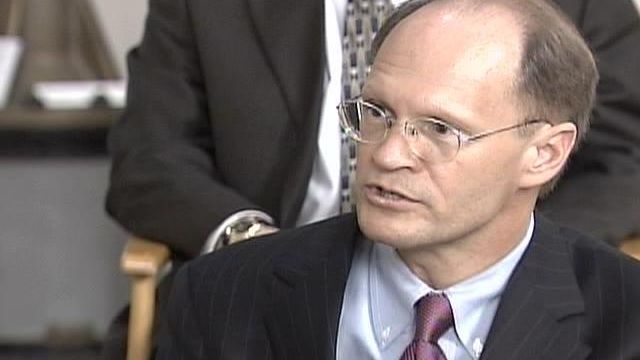Raleigh Leaders Plan to Tighten Water Restrictions
The City Council will vote next Tuesday to ban outdoor watering and pressure washing and require car washes to recycle water, Mayor Charles Meeker said.
Posted — UpdatedMayors from six towns that purchase water from Raleigh's system indicated at a meeting late Friday afternoon that they supported Meeker's plans.
"I think it's time we get very serious about this problem," Wendell Mayor Howard Broadwell said. "And if anything, I sometimes worry that maybe we've waited a little late to start from Stage 2."
Stage 2 restrictions would automatically come into effect if Raleigh's water supply dipped to 90 days, but with the supply in Falls Lake predicted to last until mid May, Meeker said he decided to push for tighter restrictions sooner.
Stage 2 restrictions would ban all pressure-washing and outdoor watering by hand or irrigation systems. Raleigh water customers in Garner, Wake Forest, Rolesville, Knightdale, Wendell and Zebulon would have to comply along with city residents and businesses.
The restrictions would impact businesses from landscapers to swimming pool operators. Car washes would be closed if they could not meet city standards for recycling water.
Home building, however, might be the industry most affected, as tightened water restrictions would prevent developers from flushing new water lines to test them. An advisory committee recommended making an exception for builders that capture the water and put it back into use.
Broadwell said he supported the restrictions on builders, although his town in eastern Wake County is growing fast.
"Obviously, it's going to slow down some of the construction ... but it's a necessary evil," Broadwell said.
Meeker pushed for the changes, even while acknowledging the economic cost might prove to be unpopular.
Meeker said he would like Raleigh to order all builders of new homes to phase out the use of drinking water for irrigation.
“I think we need to do it, not just in Raleigh but in all the municipalities who are on Raleigh’s system,” he said.
Such a measure, though, could lead to more inefficient use of water, argued Tim Minton, executive vice president of the Home Builders Association of Raleigh-Wake County.
“The problem is going to be, is basically, you’re going to have homeowners going out and watering their grass with hoses, which is not an efficient use of the water system,” Minton said.
Stage 2 restrictions would also:
- require that leaks be repaired within 24 hours of notice from the city
- ban use of water-cooled air conditioners that do not recycle water
- order businesses to review their water usage and implement conservation plans appropriate for their industry
- require that innkeepers ask guests to use their towels and linens more than once before laundering
- prohibit restaurants from serving water, except by request
- ban all non-essential use of water for commercial or public use
The seven mayors discussed formulating Stage 3 restrictions to be implemented if the drought conditions do not improve.
January 2008 got only 25 percent of normal rainfall for the month, making it the fourth-driest January on record at Raleigh-Durham International Airport, WRAL meteorologists said.
• Credits
Copyright 2024 by Capitol Broadcasting Company. All rights reserved. This material may not be published, broadcast, rewritten or redistributed.






